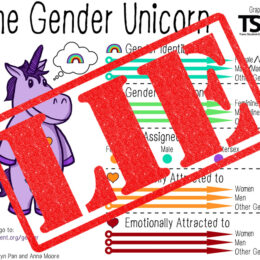RealClearPolitics | Robert Tracinski | May. 8, 2008
In recent weeks, Congress has been furiously backtracking on ethanol, with Democrats considering legislation that would freeze ethanol subsidies and mandates at their current level, while Republicans are talking about rolling back the whole system. The buzzword on Capitol Hill is that government supports for ethanol in gasoline have led to “unintended consequences”: a cruel tradeoff of food for fuel that has contributed to a global increase in food prices.
This recognition of the so-called Law of Unintended Consequences–coming from the mouths of everyone from Republican Representative Jeff Flake to Democratic Majority Leader Steny Hoyer–might seem like a good thing, like an overdue expression of skepticism about the wisdom of government intervention in a free economy. The problem is that “unintended consequences” are being invoked in this case by people who have never before expressed such skepticism about the power of government–and who are not likely to do so again.
It strikes me that there is something phony and staged about this sudden conversion. The retreat from ethanol has been too quick and easy, and former advocates of ethanol have been too eager to make excuses about its consequences being “unintended.” There is something guilty about this sudden retraction, like the hand of an embezzler suddenly jerking back out of the till when he realizes he’s been caught in the act.
Congress is not shocked to discover that an idealistic program has gone awry. Instead, they’re eager to avoid the blame for something that they already knew they were up to. This is not a case of “unintended consequences”; it is a case of intended consequences.
Members of Congress claim to be shocked that ethanol subsidies and mandates have led to higher food prices. But wasn’t this one of the intended consequences of that legislation? Wasn’t raising the price of corn–as an indirect subsidy to farmers–one of the known and welcomed consequences of ethanol supports? By mandating that oil companies include ethanol in their gasoline, and by spending tens of billons to subsidize its production, Congress certainly knew that it was creating a vast new demand for corn and supplying vast sums of money to pay for it. And they knew and hoped that this would drive up the price of corn and the profits of Midwestern farmers.
It’s not convincing for Congress to claim that its purpose was to replace oil with a cheaper alternative, because a cheaper alternative would be able to compete on its own merits and would not require government support. Cheaper goods don’t need to be subsidized.
Congress cannot claim that its goal was to promote a fuel that produces fewer carbon dioxide emissions–even if you buy all of the global warming hype–because burning ethanol still produces carbon dioxide, and some have estimated that the extra energy required to harvest corn and refine it into ethanol gives the resulting product a greater “carbon footprint” than oil. Besides, ethanol subsidies go back decades, long before they were hitched to the global warming bandwagon.
And it was always implausible for Congress to claim, as Steny Hoyer puts it, that the goal was to “become more dependent on the Midwest than the Middle East” for our fuel–because it was never plausible, even with all of the subsidies poured into it, that ethanol would supply more than a fraction of America’s fuel needs. If all we wanted was to increase domestic fuel production, it always made a lot more sense to lift controls on arctic and offshore oil drilling.
What everyone is trying to avoid admitting is that the one enduring objective of ethanol supports–a purpose known to every politician who voted for them–was precisely to jack up the price of corn. And everyone knew the calculation behind that goal: the purpose of ethanol supports was to buy votes in Iowa by boosting the profits of farmers at the expense of everyone else.
[…]
That’s why I’m getting impatient with all of this talk about the Law of Unintended Consequences. It lets the ethanol hucksters–and other advocates of government interference in the economy–off the hook. It feeds their self-image as “idealists” with good intentions. So if one of their policies after another leads to disaster–well, at worst they were “misguided” idealists whose hearts were in the right place. How could they help it if there were “unintended consequences” that no one could have foreseen?
In reality, the intention of ethanol supports from the very beginning was to rob Peter to benefit Paul–and the only thing that was really unintended is that Congress didn’t expect to get caught at it.
We can state this as a more general principle. The intended consequence of every statist scheme is to use the power of government to loot from one group of people for the benefit of another group. The purpose of government intervention in a free economy is always to use the power of government to thwart the plans and ambitions of private citizens in favor of the plans and ambitions of politicians and bureaucrats. Politicians can (and frequently do) make mistakes about who will really benefit and who will really suffer from their policies. But government regulation of the economy, whether though ethanol supports or some other scheme, is a corrupt endeavor from the very beginning, because there is no honest way to steal.
Call this the Law of Intended Consequences.
. . . more



